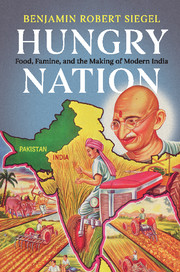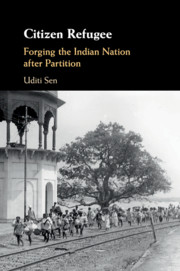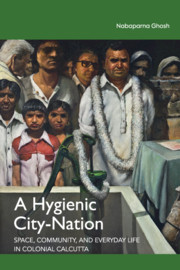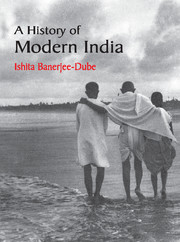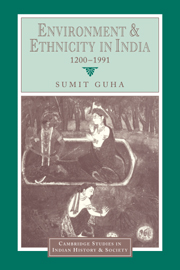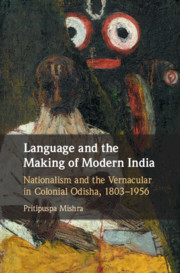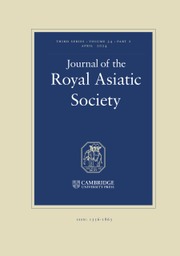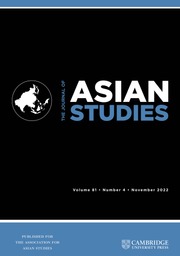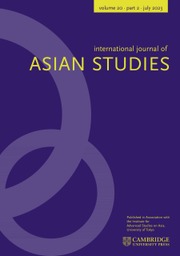Hungry Nation
Food, Famine, and the Making of Modern India
$40.99 (P)
- Author: Benjamin Robert Siegel, Boston University
- Date Published: April 2018
- availability: Available
- format: Paperback
- isbn: 9781108441964
$
40.99
(P)
Paperback
Other available formats:
Hardback, eBook
Looking for an examination copy?
This title is not currently available for examination. However, if you are interested in the title for your course we can consider offering an examination copy. To register your interest please contact [email protected] providing details of the course you are teaching.
-
This ambitious and engaging new account of independent India's struggle to overcome famine and malnutrition in the twentieth century traces Indian nation-building through the voices of politicians, planners, and citizens. Siegel explains the historical origins of contemporary India's hunger and malnutrition epidemic, showing how food and sustenance moved to the center of nationalist thought in the final years of colonial rule. Independent India's politicians made promises of sustenance and then qualified them by asking citizens to share the burden of feeding a new and hungry state. Foregrounding debates over land, markets, and new technologies, Hungry Nation interrogates how citizens and politicians contested the meanings of nation-building and citizenship through food, and how these contestations receded in the wake of the Green Revolution. Drawing upon meticulous archival research, this is the story of how Indians challenged meanings of welfare and citizenship across class, caste, region, and gender in a new nation-state.
Read more- The first comprehensive historical account of independent India's struggle to provide food for all in the twentieth century
- Draws from archival sources in Hindi, Urdu, Bengali, and English collected from archives on three continents
- Juxtaposes the accounts of politicians, bureaucrats, and planners with those of citizens themselves
Reviews & endorsements
‘This is that rare book that is historically rooted and complex, yet strikingly contemporary. The issues of hunger and malnutrition continue to be on the agenda of policy makers and society at large in twenty-first-century India. Siegel gives this a complex history and background. Imperial administrators and nationalists, concerned social activists and scholars saw this in different, often contradictory ways. Yet the multiple lenses for viewing hunger, dearth, and public action in the middle of the last century can help with insights into our own times. This is a fine book, one not to be missed.' Mahesh Rangarajan, Ashoka University, India
See more reviews‘Hungry Nation is an elegantly written, compellingly argued, account of the central role played by food and famine in the making of modern India. Through careful archival research spanning different decades since the Great Bengal Famine, Benjamin Robert Siegel takes us further than anyone before him in understanding this important issue. Scholars in a variety of disciplines, including history, anthropology, sociology, geography, political science, public policy, and public health will find much to admire and debate in these pages.' Akhil Gupta, University of California, Los Angeles
‘Both entirely innovative in its approach to politics, and cunning in its summation of the complexity of the transition to postcoloniality, Hungry Nation will find a wide audience amongst scholars of South Asia, late empire, Cold War history, food studies, and environmental history. The value of his intervention is in Siegel's ability to use a deep, thorough reading of specific policy to illuminate a meta-conception of one of the key postcolonial challenges of the era: the responsibility of government to its citizens in the intimate, visceral experience of the sustenance of life through the relationship between food and body.' Rachel Berger, Concordia University, Montreal
'Siegel’s book stands out among other works for its rich visual archive of Indian agrarian life … this book should be widely read and debated by scholars interested in the twentieth-century history of postcolonial state making, agrarian transformation, and the politics of transnational developmental expertise.' Debjani Bhattacharyya, Environmental History
'Hungry Nation is an important compilation of empirical material on the evolution of food and agriculture policy within newly independent India … it also represents a significant conceptual contribution, likely to stimulate further lines of scholarly inquiry in studies of India, both historical and contemporary.' Trent Brown, Asian Studies Review
'In the course of this fine book, Siegel refers to a range of disciplines, including agricultural, economic, political, and environmental history … Scholars, advanced students, and general readers interested in the first three decades of the development of modern India will gain much from this valuable volume.' Michael H. Fisher, The Journal of Interdisciplinary History
‘Siegel’s excellent research throws up facts that have traditionally escaped readers, whose preoccupation has largely been with the politics which underscored the departure of the British and the division of the country along communal lines.’ Syed Badrul Ahsan, Asian Affairs
Customer reviews
Not yet reviewed
Be the first to review
Review was not posted due to profanity
×Product details
- Date Published: April 2018
- format: Paperback
- isbn: 9781108441964
- length: 290 pages
- dimensions: 229 x 150 x 14 mm
- weight: 0.5kg
- contains: 12 b/w illus.
- availability: Available
Table of Contents
1. The Bengal famine and the nationalist case for food
2. Independent India of plenty
3. Self-help which ennobles a nation
4. The common hunger of the country: merchants and markets in plenty and want
5. All the disabilities which peasant and land can suffer
6. The ideological origins of the Green Revolution
Conclusion. Landscapes of hunger in contemporary India.
Sorry, this resource is locked
Please register or sign in to request access. If you are having problems accessing these resources please email [email protected]
Register Sign in» Proceed
You are now leaving the Cambridge University Press website. Your eBook purchase and download will be completed by our partner www.ebooks.com. Please see the permission section of the www.ebooks.com catalogue page for details of the print & copy limits on our eBooks.
Continue ×Are you sure you want to delete your account?
This cannot be undone.
Thank you for your feedback which will help us improve our service.
If you requested a response, we will make sure to get back to you shortly.
×
